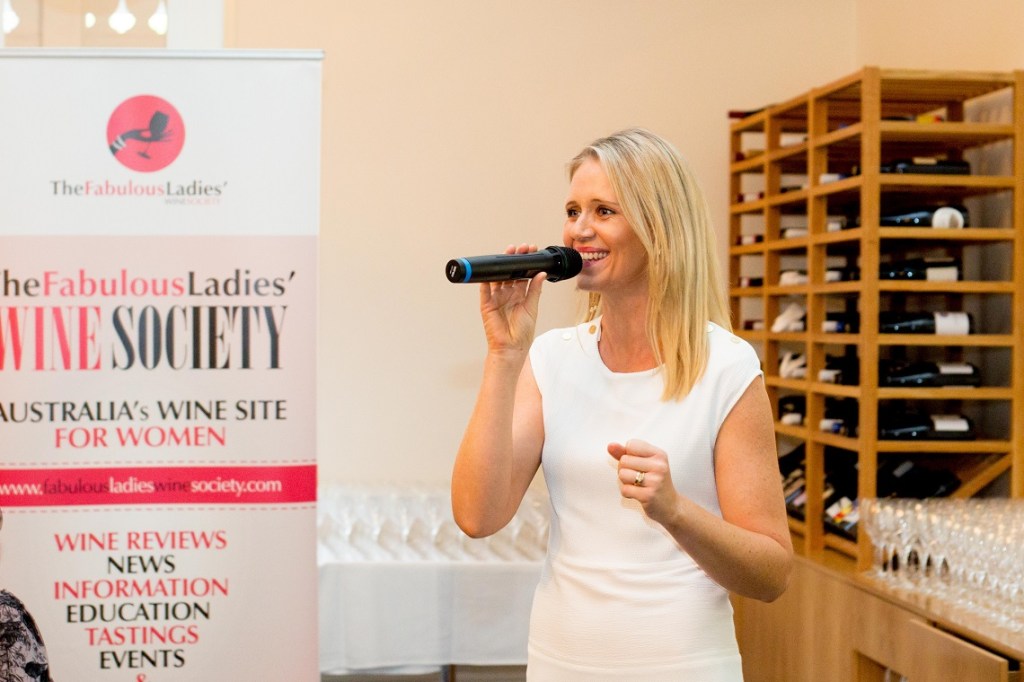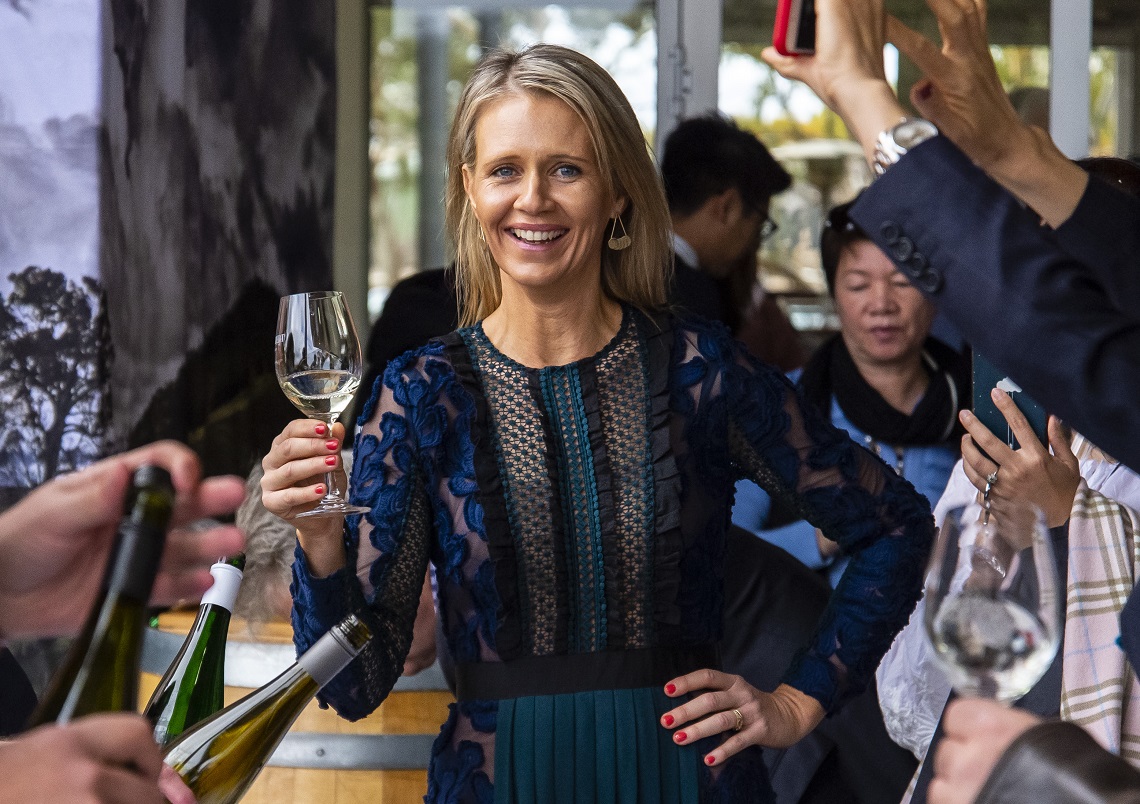Welcome to The Shout’s Industry Women Spotlight Series. In this series, we share the stories of women from across the industry, raising awareness for the challenges they face and passing on their advice for the next generation.
Through these regular profiles, we aim to hero the visibility and inspiration that is common on International Women’s Day, supporting the voices of women in different sectors of the liquor and hospitality industry. It’s important these conversations happen more frequently than just once a year.
This week I bring you the story of Jane Thomson, Founder and CEO of the Fabulous Ladies’ Wine Society, and Founder and Chair of the Australian Women in Wine Awards. With roots in wine communication and events, through just one conversation with Thomson you can be inspired to be the change you want to see in the industry.
Thomson’s first connection to wine came through her father, who, after being a very enthusiastic wine consumer, bought vineyards when she was a teenager. She says she got his passion in the same way, starting as an enthusiastic consumer and eventually working in a cellar door in the Hunter Valley, helping to run cooking and wine appreciation classes.
However at university, Thomson initially went in a different direction, studying psychology and becoming an organisational psychologist, who had a passion for talking to people about wine on the side. After moving to the Byron Bay hinterland, Thomson found there wasn’t much opportunity to be an organisational psychologist in the area, and so moved more into communications.
“After a few years, I decided that I would love to bring my passion for communication and passion for wine together, and that’s how the Fabulous Ladies’ Wine Society started, 10 years ago this year,” Thomson said.
Things have changed a lot for the society and for Thomson over the years since, and are changing still.
“I thought it would just be an online community – 10 years ago, having a blog and online community was the ‘big thing’… At no stage did I ever think we’d be the kind of business we are now, where we’re running events, tours and doing lots of things in ‘real life’. I didn’t envisage that, but within 12 months, I quickly worked out that’s what people wanted,” Thomson said.
“Pre-COVID, we were running about 30 wine events around the country every year, we’re building that back up to about that level again this year.”
On this 10th anniversary of the society, the Fabulous Ladies’ Wine Society is also adding to its remit, with the website relaunched last month to also now include an online marketplace for female-led wine brands.
“For 10 years, we’ve been working to provide a way for female wine consumers to come together and also to support women wine producers at the same time. We’ve been introducing individual wine producers to our consumer market, but the idea of a marketplace is that we can bring them all together in the one spot,” Thomson said.
“If you’re looking to support female producers, you don’t have to remember them individually, you’ve got a destination website. And you can know that whoever you purchase from there, it’s going to be a fabulous female producer.”
Be the change
The expansion of the Fabulous Ladies’ Wine Society is something that Thomson has been thinking about for a while, but ultimately, the pandemic helped push it to fruition, as did the growing atmosphere of female empowerment that Thomson had been helping to foster for years.
“When I was really flattened and unable to do much in COVID, I’d been thinking about this idea that had been on my mind for quite a few years actually. In fact, quite early on [in the Society], I wanted to do something like this but the tech would have been about 10 times more expensive than it is today,” Thomson said.
“But the zeitgeist wasn’t quite there either… when I started to sound this idea out to a few people years ago, the feedback was kinda like ‘I don’t really think we need that.’ That’s changed now, and we’ve realised we can’t just sit and hope and wait for recognition anymore, we actually have to go out hard and champion women.”
Today, Thomson said there is a lot more collective energy behind women’s movements in a wide variety of industries, with a view to not only support more equality today, but also create a better environment of equality for the next generation.
One thing that Thomson has been involved in with the Fabulous Ladies’ Wine Society to help in this movement is the Hear Me Roar campaign. This campaign is born by the Australian Women in Wine Awards Board, to help raise funds towards helping women succeed in their chosen role in the wine industry. It began in 2019 with a Hear Me Roar Shiraz, and now has a different iteration in 2022, the Hear Me Roar Gin.
“We asked everybody to nominate what they thought the botanicals should be in the gin, then we got a shortlist and asked everybody to vote on it, with the winning botanicals then going into the gin. So we genuinely think this is the gin Australian women in wine want to drink, it’s voted by them, and 100 per cent of all profits go to assisting women in wine wanting to flourish in their career,” Thomson said.
This has also been an initiative that has helped the Fabulous Ladies’ Wine Society continue to support equality in wine, despite not being able to hold awards in recent years due to the pandemic. Recent recognition has shown that the impact of the organisation goes beyond these awards though, with the Australian Women in Wine Awards winning the inaugural McWilliam’s Excellence in Action Award at the 2022 Australian Wine Industry Awards.

Overcoming key challenges of women in wine
Thanks to entering the industry through an unconventional path, as a self-described ‘fairly unknown’ personality, Thomson believes she was often not taken seriously at first.
“I felt, real or otherwise, that I was often looked at as a bit of a curiosity, because I was clearly over here making a lot of noise about gender inequality within wine. I felt like I was a little bit sidelined from mainstream industry stuff,” Thomson said.
That was until Australian wine journalist Tony Love asked her to take over his wine columns while he was away for three months, something which Thomson called a game changer for her. Then, she also was recognised in the Wine Communicators of Australia Awards, twice in three years.
“Those two things really helped to push me along in terms of industry acceptance,” Thomson said.
However, none of this came easy. There were of course a lot of challenges that Thomson faced along the way and still faces today, which mirror the issues that many women in wine deal with. Even at Thomson’s level, she feels there is a disparity between men and women when it comes to those who are chosen to host wine events.
“I’ve recently been reflecting a lot on how hard a lot of us push for gender equality in the wine industry,” Thomson said.
“Living in the society we do, everybody involves the patriarchy, both men and women. There are societal expectations that have a gender difference, and it takes a lot of cognitive awareness and awareness of your own biases to be countering those on a daily basis.
“As humans, we absorb that culture that surrounds us, and to be counterculture takes energy, awareness and reflection.”
Thomson clarified that unconscious bias is just that – unconscious – but it doesn’t mean such bias isn’t impacting women in the industry and the opportunities they are afforded.
“It’s not that people have a lack of intention, and it’s not like they don’t want to do the right thing or treat people equally – clearly when you ask people, they want gender equality. But those everyday automatic behaviours, those subconscious behaviours that we execute without thinking, actually just continue to serve the status quo,” she explained.
Therefore, a lot of noise is still needed to bring attention to these biases so the automatic behaviours can continue shifting to ones that promote gender equality.
In a positive direction
As someone who has been campaigning for more gender equality in wine for a decade now, Thomson definitely has ideas on how the industry can move in a positive direction together.
Her key point? Money. According to Thomson, there are a lot of ways that funding could help, both in promoting existing initiatives and programs, and also creating new pathways for positive change.
“If you actually want something solved, what you need to do is throw money at it. We do it with any other problem in this industry, but for some reason we don’t do it with this one,” Thomson said.
“This is an industry-wide talent drain that needs to be addressed because it is a very real commercial set back for the whole industry.”
Throughout this series, many of our featured women have pointed this out too. When women aren’t continuing their careers in wine (or the wider liquor and hospitality industry), whether by lack of support or other reasons, the talent pool shrinks – less women in wine means less people overall in wine.
Meanwhile, for the next generation of young women entering the wine industry, Thomson also had a key piece of advice. She said it’s important to be aware of how social media is objectifying women, and how this can create a problematic environment where women feel like they can only be heard by promoting their looks over their skills and knowledge.
“All the data indicates that where you have an increase in the objectification of women, you have a decrease in the equal attitude of people towards women,” Thomson said.
Catch up on all the previous profiles from our Industry Women Spotlight series here.

